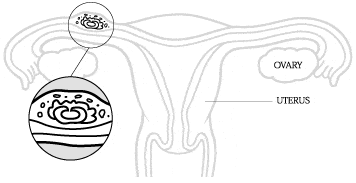Fertility Fact: Ectopic Pregnancy can be life threatening if not treated.
What is an Ectopic Pregnancy?
An ectopic pregnancy is a pregnancy anywhere outside the uterus (where the pregnancy normally develops). In a healthy pregnancy, the egg is released from the ovary into the fallopian tube to be greeted by the sperm. Once fertilization occurs, the newly formed embryo will travel the rest of the way to the uterus over about four to five days, where it implants for the next 9 months. However, in about 1 out of every 50 pregnancies, once the sperm has fertilized the egg, the embryo does not travel to the uterus, but instead implants somewhere else, most typically in the fallopian tubes, rarely in other locations. This is an ectopic pregnancy.
Who is at Risk for Ectopic Pregnancy?
There are a range of risk factors that could increase the likelihood of ectopic pregnancy, including:
- Scarring of the fallopian tubes from sexually transmitted diseases
- History of Pelvic Inflammatory Disease or Endometriosis
- Surgery in the pelvis, abdomen, or on the fallopian tubes
- Smoking
- Conception that occurs when an IUD (intrauterine device) in place
- Congenital abnormality of the fallopian tube
- Prior tubal ligation or tubal ligation reversal
- History of Ectopic Pregnancy
What are Symptoms of Ectopic Pregnancy?
Symptoms of ectopic pregnancy may seem mild at first and then become more severe as the pregnancy progresses. These symptoms include:
- Abdominal pain on one side of the body
- Vaginal bleeding
- Pain in the pelvis, rectum, neck, and/or shoulders
- Fainting or dizziness
How is an Ectopic Pregnancy Diagnosis and Treated?
A pelvic exam, blood test to determine the pregnancy hormone level, and ultrasound are typically the first steps to confirm an ectopic pregnancy. Since a pregnancy located outside the uterus will never turn into a healthy baby, and only endangers the mother’s life (before treatment improved, many women died as the result of untreated ectopic pregnancies), it is important to receive treatment quickly with either medication or surgery.
Women who lose a pregnancy because it is ectopic will have many of the same feelings as women who have experienced a miscarriage. Often times, women may need to heal from the emotional loss as much as the physical trauma before trying to conceive again.
- Resolve and Shady Grove Fertility offer support groups for women dealing with pregnancy loss. Find a group near you.
- Read the emotional effects of Recurrent Pregnancy Loss.
Why is an Ectopic Pregnancy Dangerous?
Left untreated, the pregnancy will continue to grow in a location other than the normal uterine environment. If in the fallopian tube, growth of the embryo will cause the tube to rupture – usually within the first trimester – and lead to significant internal bleeding. If your fallopian tube bursts, it is a serious medical issue that needs to be treated immediately as it can be life threatening – ectopic pregnancy is the leading cause of pregnancy-related death in the first trimester in the United States.
Can I have a Healthy Pregnancy after an Ectopic Pregnancy?
Ectopic pregnancy may damage your fallopian tube, reducing your ability to have a normal pregnancy in the future. Your physician can assess the condition of your fallopian tubes to determine if you are at a higher or lower risk of having another ectopic pregnancy. There are treatment options that you can discuss with your physician to ensure your next pregnancy develops in the right place.
If you have had an ectopic pregnancy in the past and interested in fertility treatment options, please click here to call 1-877-971-7755 to learn more.




